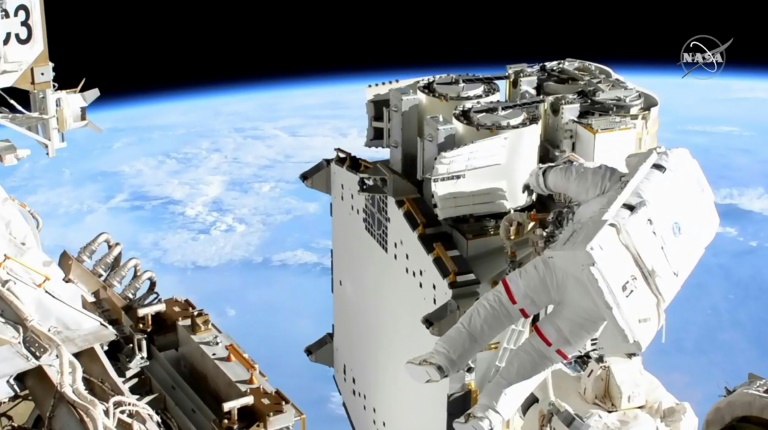The career astronauts will start training next year, with a first mission into orbit not expected until 2026
The European Space Agency announced five new career astronauts as well as history’s first astronaut recruit with a disability on Wednesday after adopting a record budget to fund its projects.
The two female and three male career astronauts “will start working immediately,” ESA director-general Josef Aschbacher told a ministerial council meeting in Paris.
From more than 22,500 applicants, the agency chose France’s Sophie Adenot, Spain’s Pablo Alvarez Fernandez, Britain’s Rosemary Coogan, Belgium’s Raphael Liegeois and Switzerland’s Marco Sieber.
They start training next year, with a first mission into orbit not expected until 2026.
They will join the astronauts from the ESA’s previous 2009 astronaut class, including Britain’s Timothy Peake and France’s Thomas Pesquet, one of whom will go to the Moon as part of the Artemis mission.
“No one is retiring today,” Pesquet told AFP, advising the new recruits to “hang on tight”.
The ESA also announced the first astronaut recruit with a physical disability, Britain’s John McFall, who will join a separate “parastronaut” programme.
McFall’s right leg was amputated after a motorcycle accident at the age of 18. He went on to represent the UK as a Paralympic sprinter and works as a trauma and orthopaedic specialist in the south of England, the ESA said in a statement.
– New budget –
The new astronauts were named after two days of tough talks by ministers from the ESA’s 22 member states meeting in Paris to decide on the agency’s future funding.
They settled on a budget of 16.9 billion euros ($17.5 billion) for the next three years, a 17-percent increase from the 14.5 billion euros agreed at the last ministerial council meeting in 2019. But it is well short of the 18.5 billion requested by Aschbacher.
“With inflation being so high, I have to say that I’m very impressed by this figure,” Aschbacher told the meeting.
Aschbacher said the increased funds were necessary for Europe not to “miss the train” in the face of competition in space from the United States and China.
French Economy Minister Bruno Le Maire hailed a “great success” that was “beyond expectations”.
Negotiations about each country’s contribution continued until the last moment before the announcement.
Germany contributed 3.5 billion euros, France 3.25 billion and Italy 3.1 billion.
The total committed remains far below US space agency NASA’s budget of $24 billion for this year alone.
Earth observation programmes, which monitor climate change back on Earth, had a six percent funding increase to almost 2.7 billion euros.
Robotic and human exploration’s budget jumped 36 percent to 2.7 billion, while telecommunications rose 19 percent to 1.9 billion euros.
– Rocket boost –
The budget for rocket launcher systems was increased by a third to 2.8 billion euros. Launchers, a subject of delicate negotiations, are crucial for Europe to be able send missions into space without outside help.
The ESA has struggled to get off the ground since Russia withdrew its Soyuz rockets earlier this year in response to European sanctions over Moscow’s invasion of Ukraine.
The job has been made more difficult by delays to its flagship Ariane 6 rocket, which was supposed to have its maiden flight in 2020 but will now blast off at the end of next year.
The ESA has even had to resort to using the Falcon 9 rockets of its rival SpaceX to launch two upcoming scientific missions.
The negotiations were given a boost on Tuesday when France, Germany and Italy announced their support for Ariane 6, the smaller Vega-C launcher and European-made micro and mini launch systems.
The ExoMars mission, which has been delayed by Russia pulling its rockets, will go ahead with US help, Aschbacher said.









